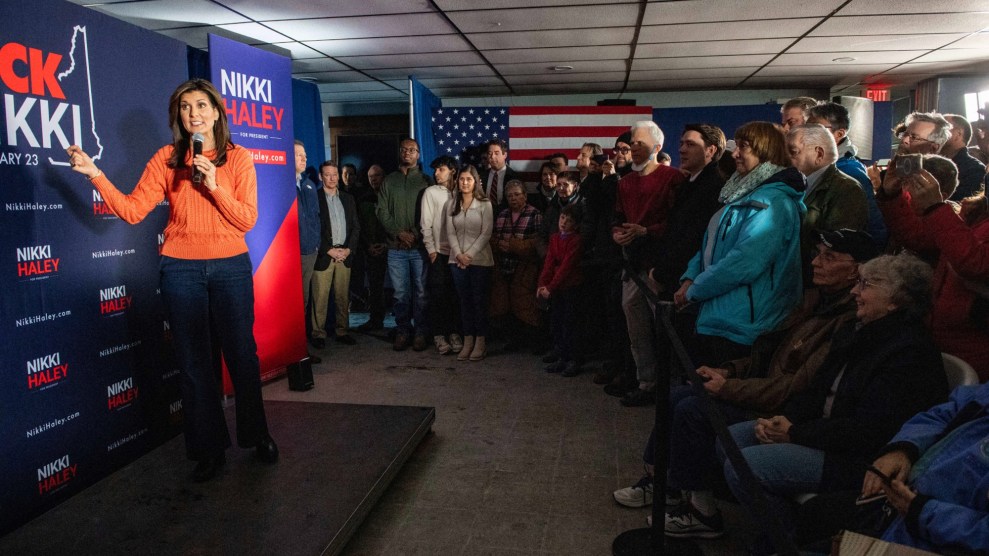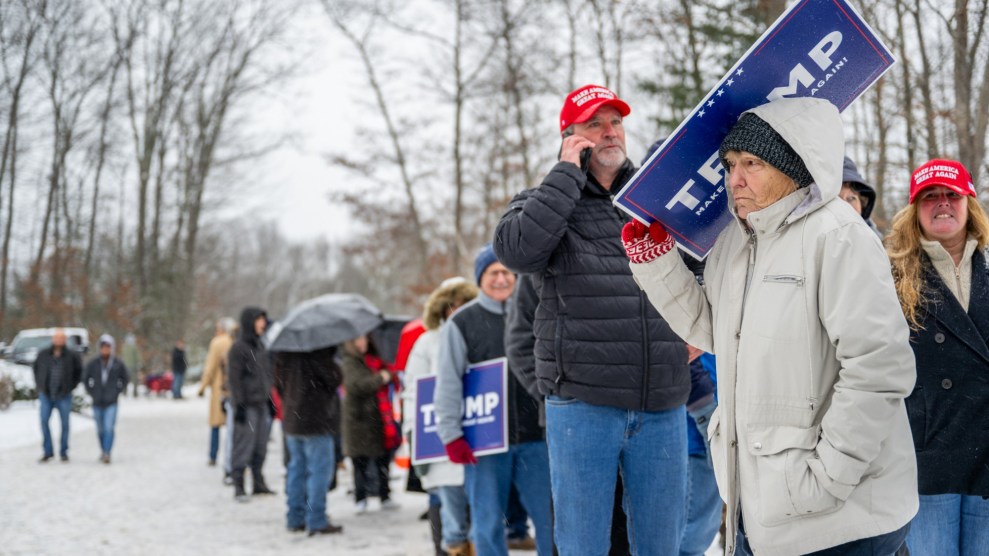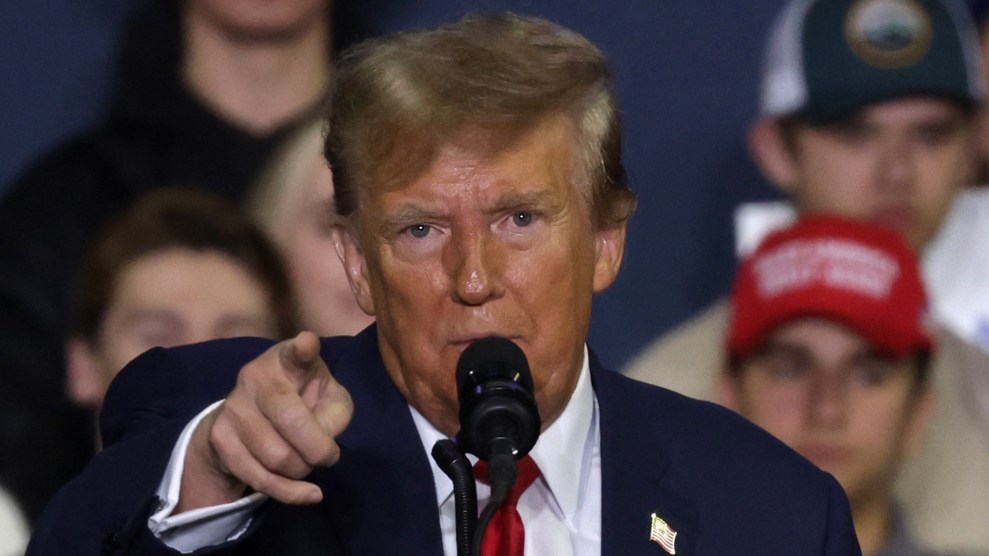New Hampshire isn’t merely the Granite State. After tonight, it’s also the déjà vu state, having almost certainly cemented a familiar general election match-up between Donald Trump and Joe Biden.
Minutes after the state’s voting locations closed Tuesday night, the Associated Press declared Trump triumphant over the last serious Republican challenger standing, Nikki Haley.
Her next and ostensibly last chance to prove her viability is the February 3 primary in her home state of South Carolina, where she served as governor from 2011 until 2017. There, a January poll by Emerson College shows Trump leading Haley by 29 points.
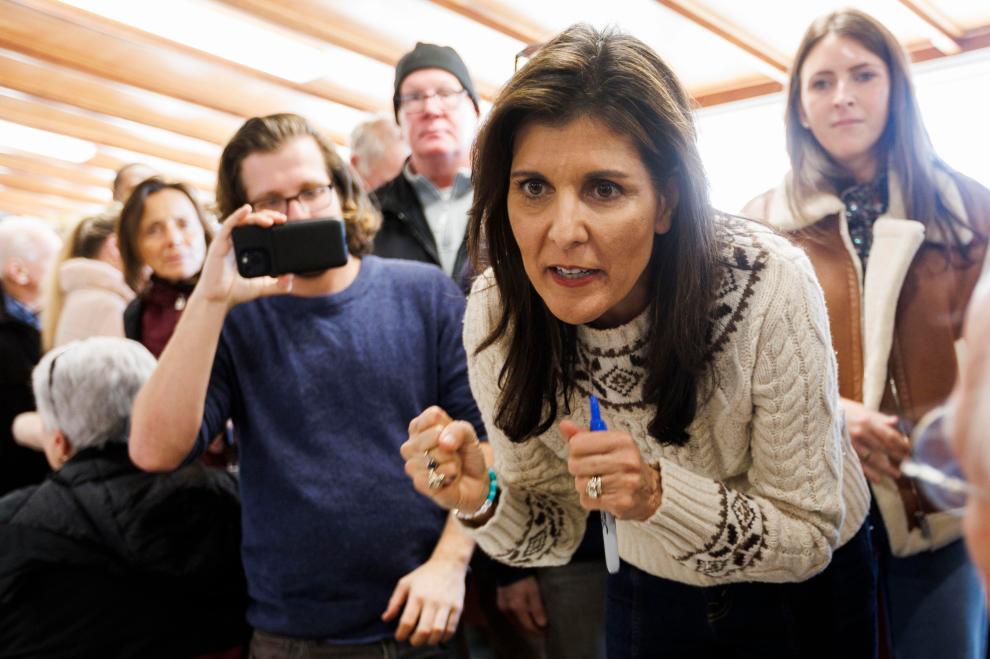
Republican candidate for president former South Carolina Governor Nikki Haley met with locals at Brown’s Lobster Pound in Seabrook on Sunday.
Cj Gunther/EFE/ZUMA
Some of her New Hampshire fans doubt she can turn it around from here. She has “no organization” in other early primary states, a New Hampshire voter from the southern part of the state told me this week. “And I don’t think she has got enough time to actually build that.”
Following two straight weeks of snot-freezing campaign stops in chilly towns and cities and tens of millions of dollars in ad-spending in advance of the nation’s first two primary contests, Trump’s Tuesday win is historic. The twice-impeached former president facing 91 felony counts is the first Republican in an open, competitive primary season to win in both Iowa and New Hampshire since 1976. (In 2016, Ted Cruz was the top finisher in Iowa.) But the norm-shattering results should also come as no surprise, considering the fervor of his base and the unforced errors of his two primary opponents.
Florida Governor Ron DeSantis’ few but devout New Hampshire supporters—polling showed him in the single digits before he dropped out Sunday afternoon—appreciated his military experience, Ivy League education, and his anti-woke crusade against transgender people and schools.
A woman named Emily who homeschools two of her three daughters told me she supported DeSantis because of his positions on the need for parental involvement in school curriculums and stronger abortion laws. Emily said she proudly gave a child up for adoption after almost having an abortion she says she would have grown to regret.
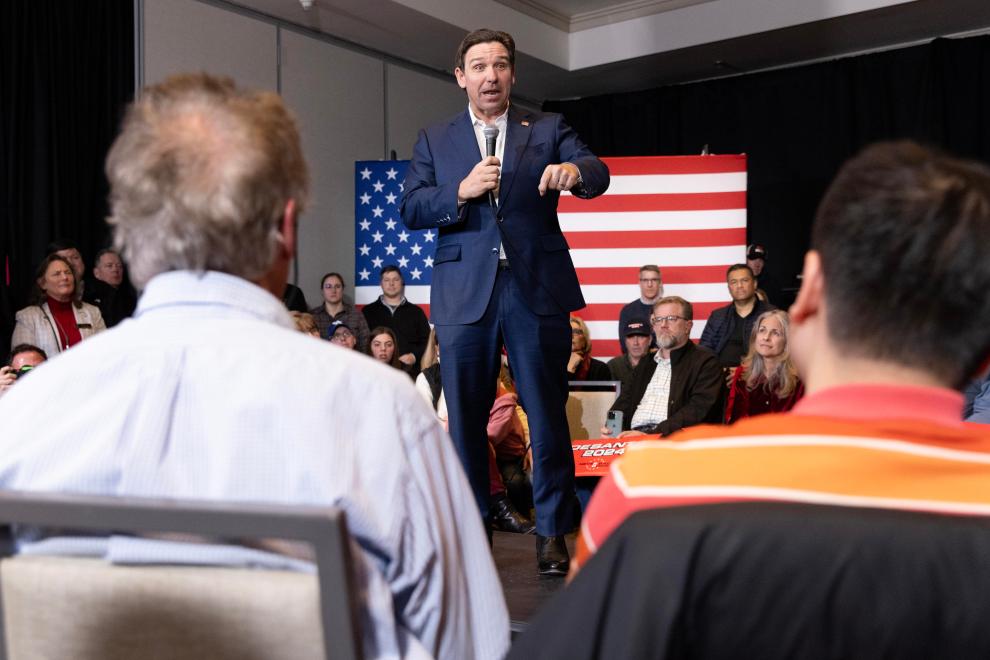
Republican presidential candidate Ron DeSantis spoke during a campaign event in Nashua on Friday.
Michael Reynolds/EFE/ZUMA
Framing his campaign around culture war issues first and foremost, however, is likely what sunk DeSantis in New England. While more than half of Iowa caucus-goers described themselves in exit polls as white Evangelical or born-again Christians, New Hampshire is “the least religious state in the country,” says Andrew Smith, a University of New Hampshire political science professor and the director of the university’s Survey Center.
“I think Ron DeSantis never took off here at all, because he’s talking about social issues,” says Smith. “New Hampshire Republicans don’t care about that stuff. Tell me about taxes. Tell me about the size of government. That’s of interest to them, but social issues? No.”
Meanwhile, Haley amassed support from the state’s split-ticket voters, who wanted to see fresh blood in Washington and thought the former ambassador to the United Nations would be perceived well by other nations.
“We would not be thrilled if Trump was representing the United States on the world stage,” said an immigrant-citizen named Anya who attended a Haley rally in Franklin on Monday. “We would be thrilled if she was.”
But while moderates like Haley, there aren’t that many left in today’s hyper-polarized society—including in New Hampshire. “People almost always consistently vote in their home party’s primary,” says Smith.
And Haley’s own reluctance to lambast her former boss for his rhetoric, authoritarian tendencies, and pile of indictments may have also alienated some moderate Democrats and independents who would have otherwise considered her.
“I just wish she had really criticized Trump,” said New Hampshire voter Cathy Kuvec, an anti-Trump Republican I met at a Haley rally.
From the moment I got to my first Trump rally in New Hampshire last week, I sensed he’d dominate on Tuesday night. The line snaked back four Manchester city blocks as elderly people in wheelchairs wrapped themselves in silver thermal blankets and parents clutched babies to their chests in 17-degree temperatures, waiting hours to hopefully see Trump speak. (At a rally I visited in Rochester, more people were turned away than admitted.)
That so many New Hampshire residents were inclined to brave the cold wasn’t the only sign of Trump’s formidable lead. The strength of his fans’ convictions was also quite telling.
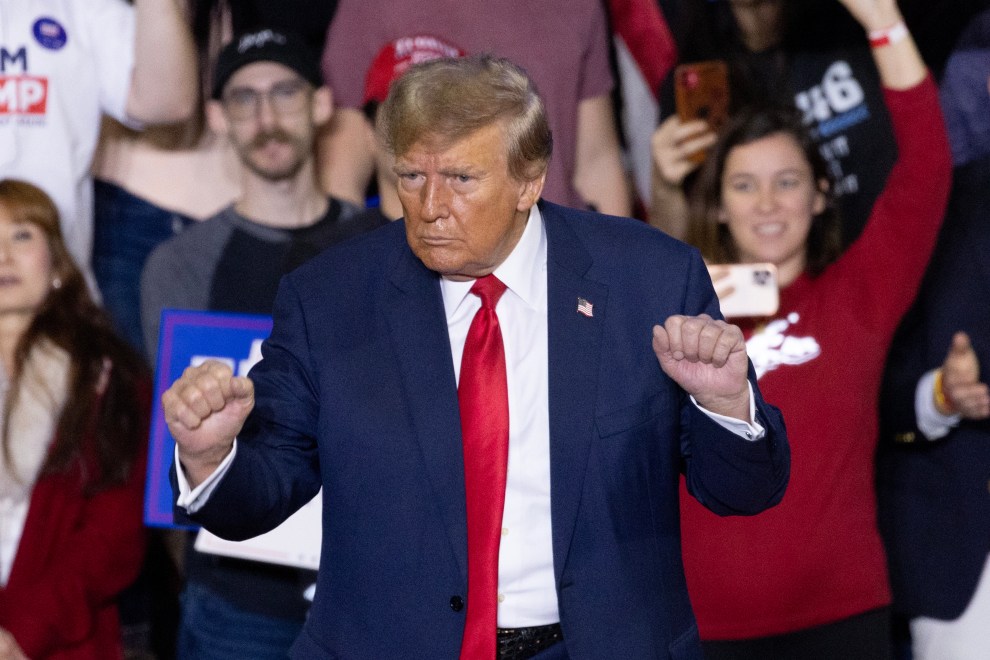
Former US President Donald J. Trump danced before concluding a campaign rally at SNHU Arena on Saturday in Manchester.
Michael Reynolds/EFE/ZUMA
In Rochester, a cadre of young men threw snowballs at the anti-Trump Lincoln Project trucks playing looped videos warning a return to Trump would be a move towards dictatorship. The sales of Make America Great Again shirts and hats were so lucrative that I heard one of the men selling them say he had made a full-time job of following Trump to rallies and selling merch. One New Hampshire woman told me this was not her first Trump rally; January 6 was. A man hugged me out of sympathy because he sensed that Biden had pressured me to get “poison jabs,” his term for Covid vaccines.
“I love everything about Trump,” said Joan Dobbins, a quick-talking Trump fan from Rochester. “He should still be president. As far as I’m concerned, he is.”
Though Trump maintains his grip on the GOP base, his fate in November is far from certain.
The ranks of the Never-Trump faction of the Republican Party have swelled since the January 6 attack on the Capitol and the criminal proceedings that have followed.
A NBC News/Des Moines Register/Mediacom poll of Iowa caucus-goers found that 43 percent of Haley supporters would back Biden over Trump.
Tuesday evening exit polling showed even stronger Trump fatigue among Haley’s backers in New Hampshire, with 88 percent of Haley supporters in the state saying they’d be dissatisfied if Trump ultimately wins the nomination.
Among those voters is Peter Slaton, a historically moderate retired paramedic supporting Haley in New Hampshire. But he wouldn’t merely be dissatisfied if Trump wins the nomination. He’d be terrified.
“I’m the generation where our parents were in the Second World War. I’ve done a lot of reading and studying, talking to people about Germany in the ’30s,” Slaton said outside a Haley rally on Monday. He says of a hypothetical second Trump-term: “I’m scared that will start to happen here.”
Top image: Mother Jones illustration: Justin Lane/EFE/ZUMA; Jim Lo Scalzo/EFE/ZUMA; Thenews2/NurPhoto/ZUMA

